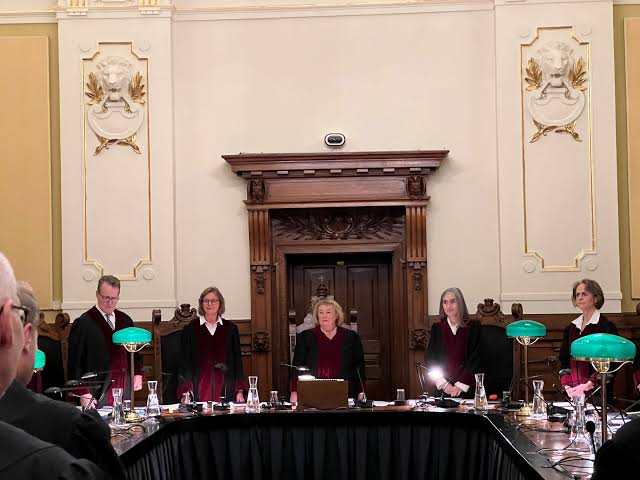The supreme court of Norway has declared that it would summon the president to order
Norwegian Supreme Court Asserts Judicial Authority Amid Sovereignty Debate

Oslo, Norway — In a significant move underscoring the judiciary’s role in safeguarding national sovereignty, the Supreme Court of Norway has announced its intention to review the government’s decision to transfer certain regulatory powers to the European Union’s Agency for the Cooperation of Energy Regulators (ACER). This decision follows a lawsuit filed by the organization “No to the EU,” which argues that the 2018 parliamentary approval of the Third EU Energy Package contravenes the Norwegian Constitution .
Background of the Case
The controversy centers on Norway’s integration of the EU’s Third Energy Package into national law through the European Economic Area (EEA) Agreement. Critics argue that this integration effectively cedes decision-making authority over national energy policy to an external EU body, thereby undermining the constitutional principle that such sovereignty transfers require a three-quarters majority in the Storting (Norwegian Parliament).
The plaintiffs contend that the transfer of authority to ACER, which operates independently of national governments, diminishes Norway’s control over its energy resources. Given Norway’s substantial hydroelectric capacity and its importance to both domestic consumption and export, the implications of this transfer are profound.
Supreme Court’s Role and Authority
Established in 1815, the Supreme Court of Norway serves as the highest judicial authority in the country, with the power to review the constitutionality of legislative and executive actions . The Court’s decision to hear this case reflects its commitment to upholding constitutional safeguards and ensuring that any transfer of sovereignty aligns with legal requirements.
Chief Justice Toril Marie Øie, who has led the Court since 2016, emphasized the importance of judicial oversight in matters affecting national sovereignty. The Court’s review will focus on whether the parliamentary approval of the energy package adhered to constitutional procedures, particularly the necessity of a supermajority vote for sovereignty transfers.
Broader Implications
This case has far-reaching implications for Norway’s relationship with the EU and the EEA Agreement. A ruling against the government’s decision could prompt a reevaluation of how Norway integrates EU directives into national law, especially in areas critical to national interest.
Moreover, the outcome may influence public sentiment regarding Norway’s participation in the EEA, an agreement that has been both lauded for facilitating economic cooperation and criticized for limiting national autonomy. The Court’s decision could reignite debates over the balance between international collaboration and domestic control.
Conclusion
As the Supreme Court prepares to deliberate on this pivotal case, the nation watches closely. The Court’s ruling will not only determine the legality of the specific energy policy in question but also set a precedent for how Norway navigates the complex interplay between national sovereignty and international obligations.
The decision is expected to be delivered later this year, and its ramifications will undoubtedly resonate across the political and legal landscape of Norway.












Post Comment